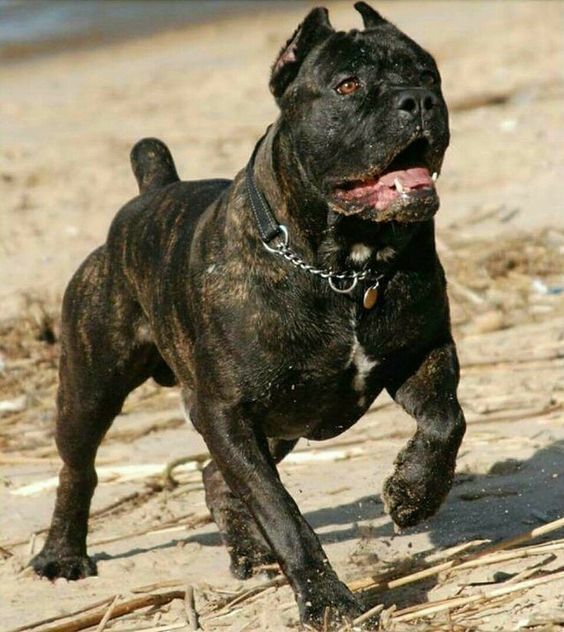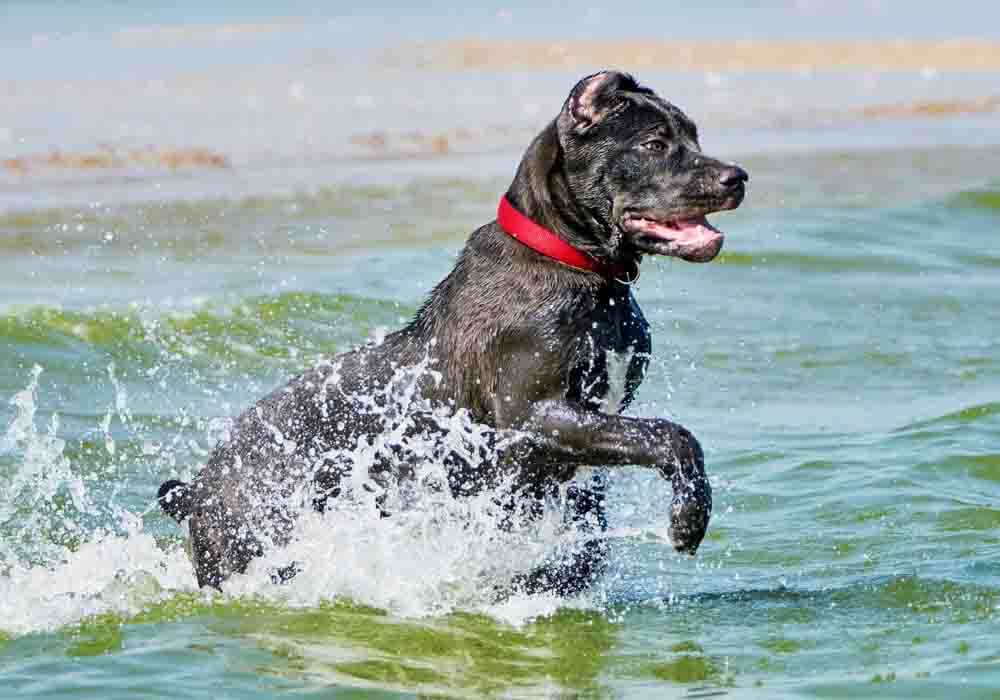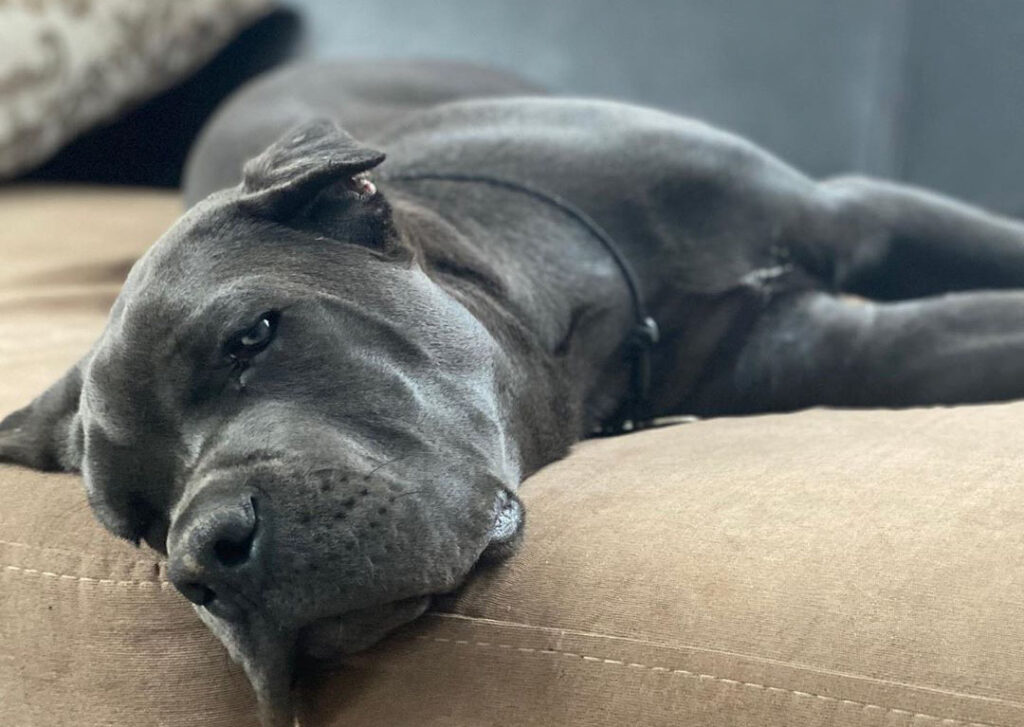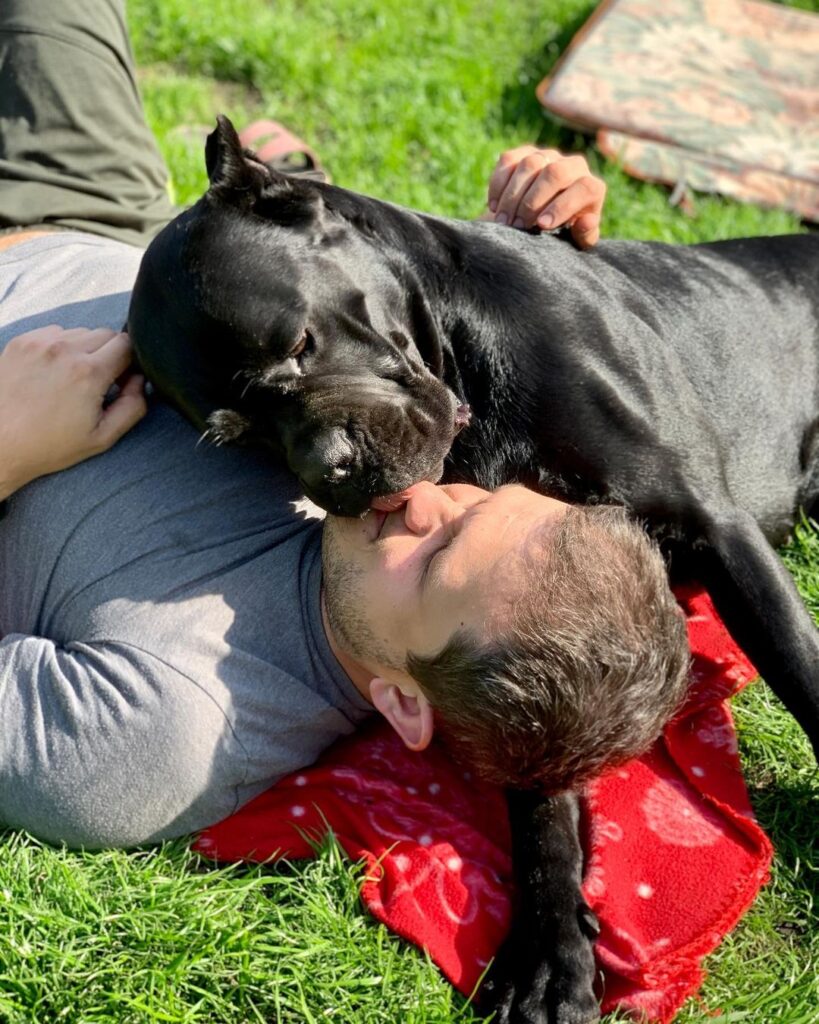
Cane Corsos are renowned for their powerful physique, keen intelligence, and strong-willed nature. While they make excellent companions and guard dogs, their stubborn behavior can sometimes pose challenges for owners. Understanding the reasons behind their stubbornness and learning effective ways to manage it is essential for a harmonious relationship between you and your Cane Corso. “Are Cane Corsos Stubborn?”
Reasons that Make a Cane Corso Stubborn
- Lack of Proper Training: Inadequate training during their early development can lead to stubborn behavior as they may not understand expected commands and behaviors.
- Strong Prey Drive: Rooted in their history as hunters, Cane Corsos’ natural prey drive can make them appear stubborn when they impulsively follow scents or objects.
- Territorial Instincts: Guarding instincts can translate into territorial behavior, causing them to resist commands in an effort to protect their perceived territory.
- Independence: Their inherent independence, developed from their working dog lineage, can lead to a strong-willed attitude during training sessions.
- Loyalty and Protection: Deep bonds with owners or caregivers can lead to apparent stubbornness as they aim to protect their loved ones, sometimes disregarding commands from others.
Understanding these factors provides insight into the reasons behind Cane Corsos’ stubborn behavior. Addressing these issues through training and positive reinforcement can result in more cooperative and well-behaved dogs.
How to Treat a Cane Corso with Stubborn Behavior
When dealing with a stubborn Cane Corso, a consistent training approach is essential. Positive reinforcement techniques, such as rewarding desired behaviors, can yield more effective results than punitive methods. Consistency in commands and rewards establishes a clear communication channel between you and your dog, reinforcing the desired behaviors over time.
Patience and persistence are virtues when managing a stubborn Cane Corso. Regular training sessions, approached with a calm demeanor, can gradually reduce stubborn tendencies. This breed responds well to owners who invest time in building trust and understanding, leading to improved behavior in the long run. For owners seeking professional guidance, enrolling a Cane Corso in obedience classes under the supervision of experienced trainers can yield remarkable results. These professionals can tailor their training methods to suit the individual behavior of your dog, ensuring better outcomes.
How to Discipline a Cane Corso
Disciplining a Cane Corso should always prioritize their well-being and the preservation of your relationship. Avoid physical punishment, as it can exacerbate stubbornness and instill fear-based responses. Instead, focus on non-violent discipline methods like timeouts or withholding rewards. Maintaining a balance between firmness and fairness is key. A firm but fair approach during training and discipline will help establish your role as the pack leader, and consistency in rules and boundaries will reinforce this dynamic.
Redirecting behavior is another effective technique. Instead of punishing undesirable actions, redirect your Cane Corso’s attention to more acceptable behaviors. Offer alternative activities or commands to shift their focus and gradually replace stubborn tendencies with positive habits.
Do Cane Corsos Bond with One Person?
Cane Corsos are known for their capacity to form deep bonds with their owners or primary caregivers. This loyalty can sometimes manifest as apparent stubbornness, especially when they perceive a need to protect their beloved human. Socialization plays a significant role in their ability to interact with other people and animals. Early socialization helps prevent over-attachment and potential behavior issues, creating a well-rounded temperament.
Exercises to Prevent Stubborn Behavior in a Cane Corso
Engaging a Cane Corso’s mind is crucial to preventing stubborn behavior stemming from boredom. Puzzle toys and interactive games provide mental stimulation, reducing restlessness and keeping their minds occupied. Regular exercise is equally essential. Daily walks, playtime, and activities that challenge their physical prowess can channel their energy positively, reducing the likelihood of displaying stubborn behaviors.
Incorporating obedience training into exercise routines further reinforces their training commands. This integrated approach creates a focused, well-behaved dog that is more likely to listen and respond to your cues, ultimately minimizing stubborn tendencies. By understanding the reasons behind their stubbornness and implementing effective strategies, you can foster a harmonious relationship with your Cane Corso based on mutual respect and cooperation.
Understanding the Bond Between Cane Corsos and Their Owners
Cane Corsos are known for their strong sense of loyalty and attachment to their owners. This deep bond can sometimes contribute to their perceived stubbornness. When a Cane Corso forms a strong attachment to one person, they may become more protective and unwilling to comply with commands from others. This behavior can stem from their desire to keep their loved one safe and secure. While this loyalty is a commendable trait, it can result in challenges during training, especially when interacting with unfamiliar individuals.
Balancing Independence and Obedience
Cane Corsos possess an innate sense of independence that is often mistaken for stubbornness. This independent streak is rooted in their history as working dogs that needed to make decisions on their own while protecting property or livestock. While this independence can make training more challenging, it’s essential to strike a balance between allowing them to think for themselves and fostering obedience. Encouraging them to make choices within the context of training commands can help channel their intelligence and independence in a positive direction.
Developing a Structured Routine for Behavioral Improvement
Consistency is key when dealing with a stubborn Cane Corso. Establishing a structured daily routine that includes training sessions, exercise, playtime, and rest can contribute to a more well-behaved dog. Predictable routines help them understand expectations and reduce anxiety, leading to improved behavior. Integrating training into various aspects of their routine helps reinforce commands and behaviors across different contexts, contributing to a more obedient and cooperative pet.
The Role of Genetics in Stubborn Behavior
It’s worth noting that genetics also play a role in a Cane Corso’s behavior. While training and socialization are crucial, some dogs may inherently possess stronger stubborn tendencies due to their genetic makeup. Responsible breeding practices that prioritize temperament and behavior can contribute to producing Cane Corsos that are less prone to stubbornness. When selecting a Cane Corso, it’s advisable to work with reputable breeders who prioritize the overall temperament of their dogs.
Building Trust and Respect for Effective Training
Earning your Cane Corso’s trust and respect is fundamental to successful training and behavior modification. Positive interactions, consistent rewards, and clear communication build a foundation of trust between you and your dog. When your Cane Corso trusts and respects you as their leader, they are more likely to listen and follow your commands willingly. Building this strong relationship requires time and effort, but it’s a crucial step toward minimizing stubborn behavior and fostering a healthy companionship.
Common Misconceptions About Cane Corsos and Stubbornness
There are several misconceptions surrounding Cane Corsos and their stubborn behavior. One common misconception is that stubbornness is a sign of aggression. While Cane Corsos can display assertive behavior, true aggression is different and requires appropriate training and handling. Additionally, attributing stubbornness solely to dominance can oversimplify the issue. Stubbornness can stem from various factors, including genetics, temperament, and training history. It’s important to approach training and behavior modification with a holistic understanding of your individual dog’s needs.
The Importance of Early Socialization
Early socialization is a powerful tool in preventing and managing stubborn behavior in Cane Corsos. Exposing them to various people, animals, and environments from a young age helps them develop confidence and adaptability. A well-socialized Cane Corso is more likely to navigate new situations without displaying stubbornness or fear. Gradually introducing them to different scenarios and positively reinforcing their calm behavior sets the stage for a well-adjusted adult dog.
Creating a Positive Training Environment
Creating a positive training environment is essential for minimizing stubborn behavior. Avoid training sessions that are overly long or repetitive, as this can lead to frustration for both you and your Cane Corso. Keep training sessions engaging and enjoyable by incorporating play and interactive activities. Ending on a positive note, with successful commands and rewards, encourages your dog to look forward to future training sessions.
The Role of Age in Addressing Stubbornness

The age of your Cane Corso can influence how you approach addressing stubborn behavior. Puppies, for instance, are naturally curious and may display stubbornness due to their eagerness to explore the world around them. Patient and consistent training during these early stages lays the groundwork for better behavior as they mature. Adult Cane Corsos, while more set in their ways, can still benefit from training and behavior modification. Tailoring your approach to their age and individual personality ensures that you address their stubborn tendencies effectively.
FAQs
1. Why are Cane Corsos considered stubborn?
Cane Corsos have a strong will and natural instincts that can manifest as stubborn behavior, especially if not properly trained or socialized.
2. Can I train my stubborn Cane Corso at home?
Yes, consistent and positive reinforcement-based training at home can be effective in curbing stubborn tendencies.
3. Are Cane Corsos suitable for first-time dog owners?
Cane Corsos can be challenging for inexperienced owners due to their stubbornness. However, with dedication and proper training, they can be great companions.
4. How do I address territorial behavior in my Cane Corso?
Address territorial behavior by gradually introducing them to new people and environments, while teaching them “leave it” and “quiet” commands.
5. Can Cane Corsos get along with other pets?
Proper socialization from an early age can help Cane Corsos coexist with other pets. However, their strong prey drive might make supervision necessary.
6. What age is best to start training a Cane Corso?
Start training as early as 8 weeks old with basic commands and socialization. Early training sets the foundation for better behavior.
7. Should I use treats for training my Cane Corso?
Yes, using treats as rewards for good behavior reinforces positive actions and motivates your Cane Corso during training.
8. Can I discipline my Cane Corso by raising my voice?
While raising your voice might work for some dogs, it can escalate stubborn behavior in Cane Corsos. It’s better to focus on positive reinforcement.
9. How much exercise does a Cane Corso need to prevent stubbornness?
Cane Corsos require daily exercise, including walks, playtime, and mental stimulation, to keep them physically and mentally engaged.
10. Are Cane Corsos aggressive due to their stubborn nature?
Cane Corsos can be protective, but proper training and socialization can prevent excessive aggression stemming from their stubborn tendencies.
Conclusion
In conclusion, understanding and addressing the stubborn behavior of Cane Corsos is a multifaceted journey that requires patience, knowledge, and commitment. These remarkable dogs possess a mix of loyalty, independence, and natural instincts that can sometimes result in perceived stubbornness. By delving into the reasons behind their behavior, we’ve explored how inadequate training, strong prey drive, and territorial instincts can contribute to their headstrong demeanor.
With over 4 years of devoted companionship with my beloved Labrador Retriever, Robin, I have cultivated a deep understanding and expertise in all things canine. From training and behavior to health and well-being.



